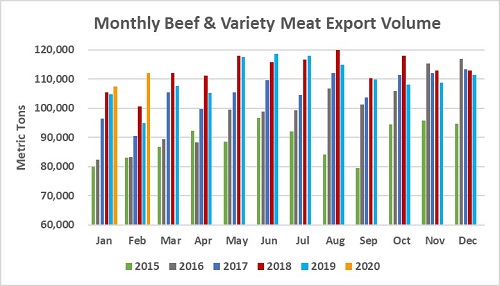These days, it seems as if the bad news just keeps coming. The changes COVID-19 has brought for Coloradans, Americans and people across the globe are unprecedented and it has impacted every corner of our lives. Businesses have shuttered (hopefully temporarily) to comply with stay-at-home orders, unemployment filings have skyrocketed and the death toll continues to rise.
The agriculture industry is not immune from the bad news. Although the industry is open for business, the environment in which farmers and ranchers continue to work, has shifted drastically. Uncertainty is the name of the game: labor shortages have left farmers wondering if they’ll have the help they need to care for the crops they grow this summer and help to harvest in the fall; grocery stores have gone from supplying 40 percent of food to nearly 90 percent almost overnight, leaving pressure on the supply chain to adapt to changing purchasing; and nearly all commodity prices have seen prices tank in double digital percentage losses across the board–some losses ranching as high as 40 percent. Headlines are full of stories about dairies dumping milk and crops being left to rot in the ground and while Colorado has avoided that loss, a devastating freeze has left the peach crop on the Western Slope reeling.
So what about that bright light?
Thankfully, there is some good news. Global export markets of beef and pork have remained strong through the beginning of this pandemic. A recent report by the U.S. Meat Export Federations shows record exports by U.S. pork and double-digit gains from beef in February. During a CFB member call, USMEF CEO Dan Halstrom reported that U.S. relationships with foreign markets are still strong and as economies in Asia begin to open up, opportunities for U.S. red meat will continue to emerge.
Halstrom also reported the potential for a demand increase in current markets when COVID-19 recovery has occurred. For example, some countries have built out extensive digital delivery service infrastructure that allows for food ordering and delivery from both grocery stores and restaurants, a possible opportunity that will increase demand. While the future is still uncertain for this type of opportunity, Halstrom remained positive that the abundant, high-quality and safe meat supply from the U.S. will continue to remain in demand.
The hard work developing trading relationships with other countries is paying off. Japan and South Korea are two countries in particular where recent trade deals have opened up export opportunities and as countries open up from stay-at-home orders, these trade deals will become increasingly important.
Colorado Farm Bureau will continue to hold member calls on Wednesday mornings. For more information about past and upcoming topics, contact Taylor at taylor@coloradofb.org or watch our Facebook and digital newsletters.




